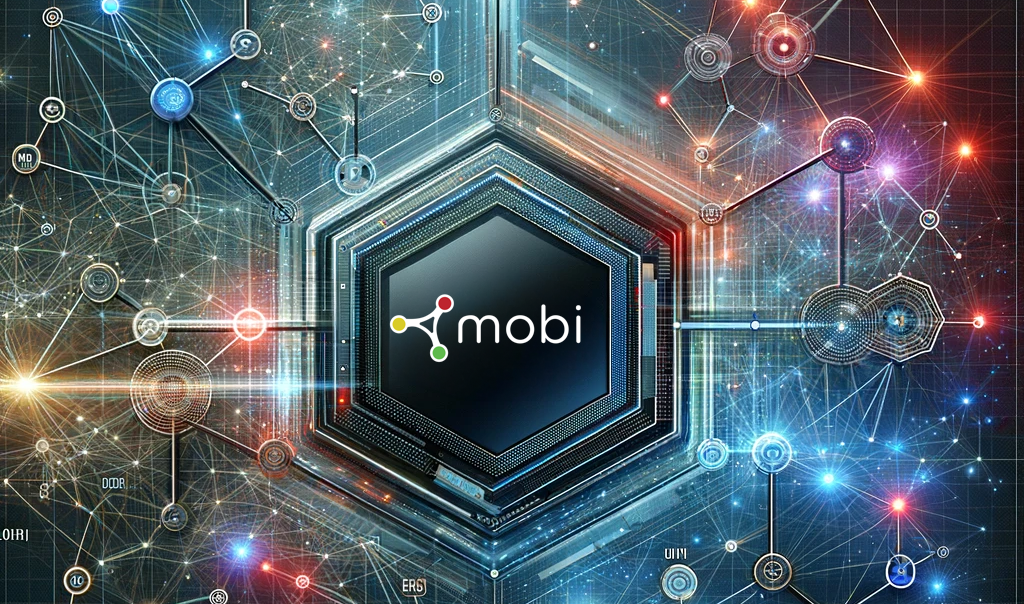What is Mobi?
The organization of data into knowledge graphs is akin to the intricate way humans naturally think about and comprehend information. Much like the dynamic connections formed in our minds, knowledge graphs capture the richness of relationships and context, transcending mere data points. Each node in the graph becomes a character in the story, and the edges between them are the subtle threads weaving a tapestry of meaning. Knowledge graphs offer a canvas where data transforms into a living, breathing narrative—a reflection of the complexity and interconnectedness that defines our cognitive landscapes. Just as human understanding is dynamic and evolves, Mobi recognizes the fluid nature of knowledge graphs. In this continuous journey of knowledge evolution, Mobi introduces a paradigm-shifting approach with its novel versioning system. Inspired by the robust version control principles of Git, Mobi treats knowledge models as first-class citizens, allowing users to navigate the intricate branches and revisions of their semantic graph data with the agility and precision traditionally reserved for software development.
“By 2025, graph technologies will be used in 80% of data and analytics innovations, up from 10% in 2021, facilitating rapid decision making across the enterprise.”
– Gartner “Market Guide: Graph Database Management Solutions” Merv Adrian, Afraz Jaffri 30 August 2022
As organizations embark on a journey to empower their data and analytics with cutting-edge graph technologies, Mobi stands out as a robust tool, not only for the development of, but also for tracking the provenance of semantic artifacts. Beyond development, Mobi excels in operationalizing these artifacts seamlessly across a diverse array of semantic tooling. The applicability of this type of approach spans enterprise problems from metadata management to powering LLM solutions. Experience the power of interconnected knowledge graphs and elevate your data operations with Mobi’s dynamic capabilities.
What is DataOps?
“The goal of DataOps is to bring rigor, reuse, and automation to the development of data pipelines and applications.”
– Wayne Eckerson, Data Strategy Insider
DataOps, an evolving discipline within the realm of data management, embodies the principles of collaboration, automation, and continuous improvement to streamline the entire data lifecycle. At its core, DataOps seeks to break down silos, enhance communication, and accelerate the delivery of data-driven insights.
Next Steps
Congratulations on choosing Mobi! Your journey has just begun, and we’re here to guide you every step of the way. Once you’ve downloaded Mobi, our dedicated support doesn’t stop there. Explore our comprehensive documentation to gain insights into the full potential of Mobi’s features and functionalities. Stay updated with the latest improvements and enhancements by checking out the release notes. If you have questions or need assistance, our support team is just a click away. Dive into a wealth of resources to maximize your Mobi experience, ensuring you harness the full power of our collaborative ontology editor. Let’s embark on this knowledge exploration together!
Semantic DataOps
Semantic knowledge graphs play a pivotal role in this landscape by providing a flexible and interconnected representation of data. This standards-based approach acts as a unifying force, enabling seamless interoperability and communication among the various stakeholders in the data ecosystem. With their ability to capture complex relationships and context, semantic knowledge graphs enhance the agility and adaptability of DataOps workflows. By incorporating these dynamic structures, organizations can navigate the evolving landscape of data operations with precision, fostering a more collaborative and efficient approach to data management.
A Semantic DataOps (SemOps) Platform
Knowledge graphs provide a robust, standards-based approach to integrate data from heterogeneous sources. This is an invaluable means by which to distill and represent knowledge that is spread throughout the ecosystem of data silos in an enterprise. By seamlessly blending the principles of DataOps with the dynamic capabilities of semantic knowledge graphs, Mobi transforms the way organizations manage and deploy ontologies and vocabularies. Its innovative features empower users to automate the entire lifecycle of semantic artifacts, from collaborative creation to integration and deployment, fostering a culture of continuous improvement and agility. Mobi’s adaptability and scalability make it a cornerstone for organizations seeking to streamline their data operations, ensuring that semantic artifacts evolve harmoniously with the changing demands of the data landscape.
“DataOps can yield an order of magnitude improvement in quality and cycle time when data teams utilize new tools and methodologies.”
Our journey in delivering services to support large enterprises navigating semantic data fabrics illuminated a crucial need for a sophisticated tool that could effectively apply SemOps practices to ontologies and vocabularies across diverse downstream systems. This realization prompted the development of Mobi, a powerful and collaborative SemOps platform. With a foundation rooted in real-world experiences, Mobi addresses the intricate challenges of managing and evolving semantic artifacts within expansive enterprise ecosystems. By weaving together our expertise in service delivery and the demand for dynamic SemOps practices, Mobi emerges as a transformative solution, providing organizations with the means to orchestrate and optimize their semantic data strategies across a spectrum of downstream systems. Mobi empowers organizations to seamlessly navigate the complexities of semantic knowledge graphs, providing a collaborative and web-based ontology editor that fosters efficient collaboration and exploration.
By embracing Mobi, users unlock the ability to make their knowledge graphs more agile and responsive to change, transforming data operations into a flexible and adaptive journey. With its intuitive interface, robust versioning capabilities, and support for diverse ontologies and vocabularies, Mobi stands as the catalyst for ushering in a new era of SemOps, where the evolution of data is not just managed, but embraced.
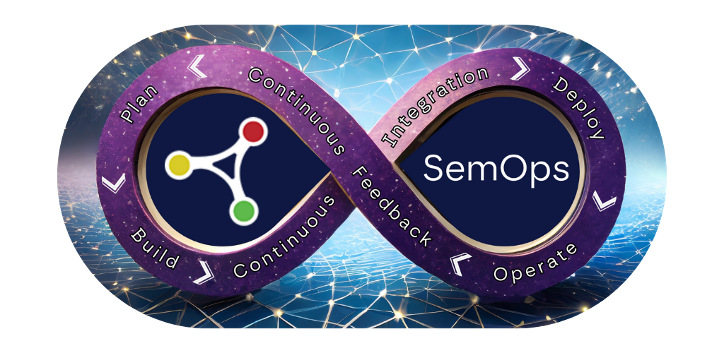
Ontology Editor
A core component of the Mobi platform, and DataOps itself, is the definition of the types, attributes, and relationships of your data. Mobi offers a robust versioned editing experience for developing ontologies (or models), enabling solution engineers to collaborate directly with subject matter experts and deliver a highly effective description of your knowledge graph. Fashioned after git, the Ontology Editor employs techniques to foster collaboration and review workflows so that you can have confidence in the correctness of your definitions. The editor also supports the development of standardized vocabularies that help facilitate data alignment and ensure a consistent terminology is used throughout the solution and get your entire enterprise speaking the same terms.
Treating your data model, or ontology, as a first-order software citizen is crucial as it acknowledges the significance of these semantic structures in driving intelligent decision-making and data interactions. By seamlessly integrating it into DevOps workflows and closely versioning, organizations ensure that their evolving data models align with the agile principles of continuous integration and deployment, fostering adaptability and precision in the ever-changing landscape of data operations.
Mapping Tool
Within the Mobi platform, the Mapping Tool stands as a powerful asset, designed to simplify the integration of non-semantic graph data into knowledge models with remarkable ease and efficiency. This feature serves as a gateway for teams, providing a seamless and rapid process to load data without the complexities often associated with semantic graph integration. The Mapping Tool’s intuitive interface empowers users, even those without extensive technical expertise, to effortlessly navigate the mapping process. By bridging the gap between non-semantic and semantic data, Mobi’s Mapping Tool ensures that teams can swiftly transform their data landscape without unnecessary hurdles, fostering a more agile and accessible approach to knowledge modeling.
Shapes Graph Editor
Crucial to any operational knowledge graph, and the DataOps methodology, is validation of the logic represented within. In the presence of logical inconsistencies or false assertions within your graph, decisions derived from it may be inaccurate and result in significant adverse consequences. Mobi provides a similar versioned editing experience to develop Shapes Graphs containing descriptions of the ideal “shape” of a knowledge graph aligned to the models developed in the Ontology Editor. These constraints and rules can then be applied towards your final knowledge graphs so you can have confidence in the effectiveness and quality of your semantic solutions.
The granular semantic versioning applied to SHACL shapes within Mobi introduces a paradigm shift in empowering data validation across your knowledge graph. By meticulously versioning SHACL shapes, Mobi allows for precise tracking of changes, ensuring transparency and reproducibility in the evolution of your semantic graph data. This granular versioning not only facilitates effective collaboration among stakeholders, but also provides the foundation for fine-tuned control over data validation processes. As a result, users can confidently validate and ensure the integrity of their knowledge graph at a granular level, fostering a more agile, adaptable, and accountable approach to data validation within the semantic landscape.
Data Workflows
Introducing a groundbreaking capability within Mobi—applying semantically driven Continuous Integration/Continuous Deployment (CI/CD) workflows. This feature is at the core of Mobi’s DataOps narrative, offering an innovative approach to operationalize knowledge models. By seamlessly integrating testing and deployment of semantic artifacts to downstream systems, Mobi empowers users with a dynamic and adaptive CI/CD environment. This not only ensures the consistency and accuracy of knowledge models, but also enhances the overall efficiency of data operations. Embracing semantically driven CI/CD workflows in Mobi signifies a pivotal step towards agile, automated, and accountable management of knowledge models, amplifying the platform’s role in advancing the DataOps journey.
Mobi’s extensible workflows layer enables the application of proven SecDevOps techniques from standard development best practices to the knowledge models and vocabularies that are developed here. As your knowledge model evolves, your team can uphold confidence in the operational integrity of the data graph (A-box) through the continuous execution of integration tests—analogous to how regression tests safeguard the stability of a software product baseline.
Capabilities
Open Business Solution Platform
Tap the full potential of your enterprise data to deliver fresh insights.
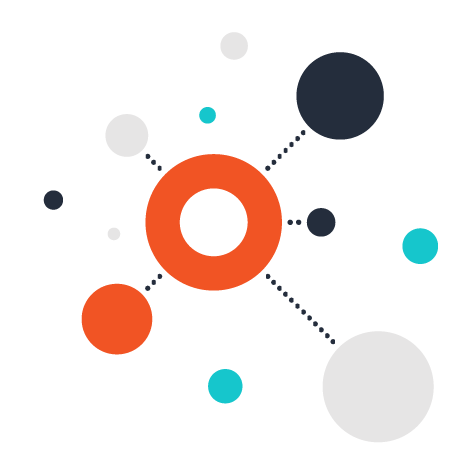
Collaborative Data Modeling
Bring your team or community together to create, share, and evolve data models in a modern, web-based, collaborative environment.
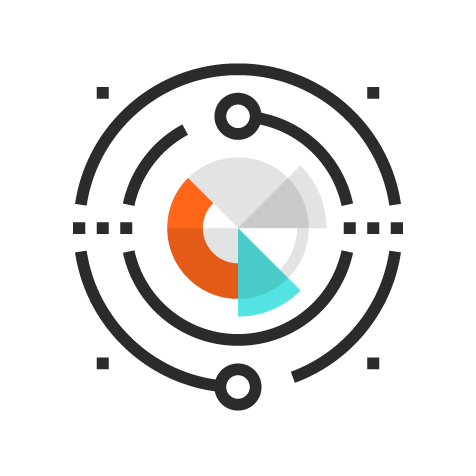
Automated Data Enhancement
Mobi makes it easy to integrate data into your models. The included mapping tool aligns your data to generate interoperable data without writing a single line of code.
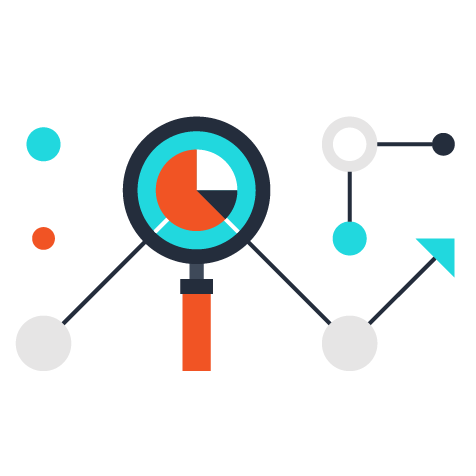
Intuitive Data Exploration
Bundled tools make it easy to search and explore your enterprise data without the hassle of writing queries or analyzing models. Oh, and the query tools are there too.
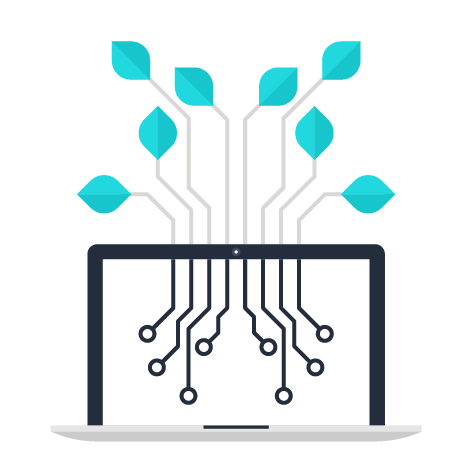
Modular & Extensible
Pluggable backend storage solutions, open REST and Java APIs, and a plugin framework make it easy to build solutions that extend and customize the Mobi Platform to solve your business problems.
